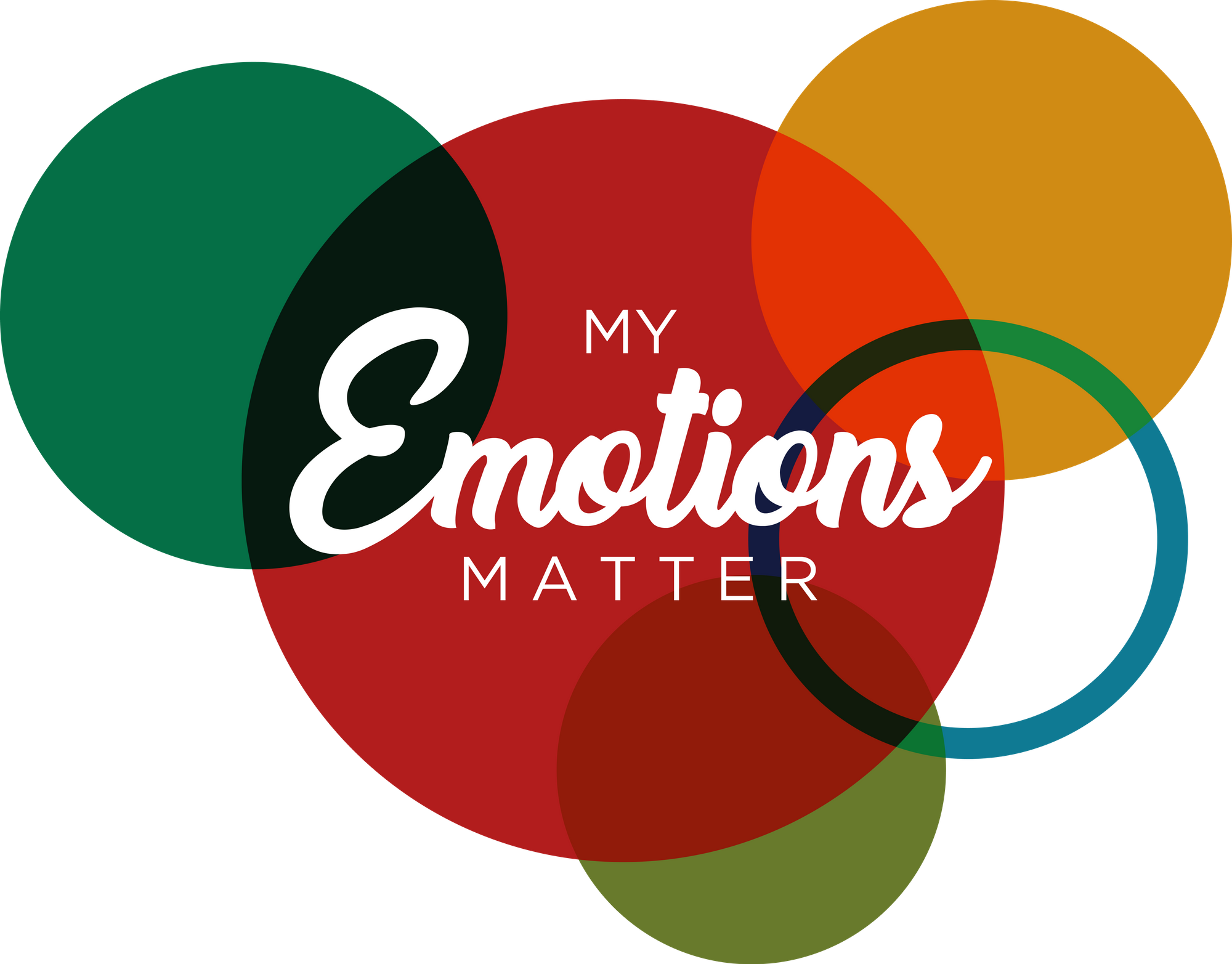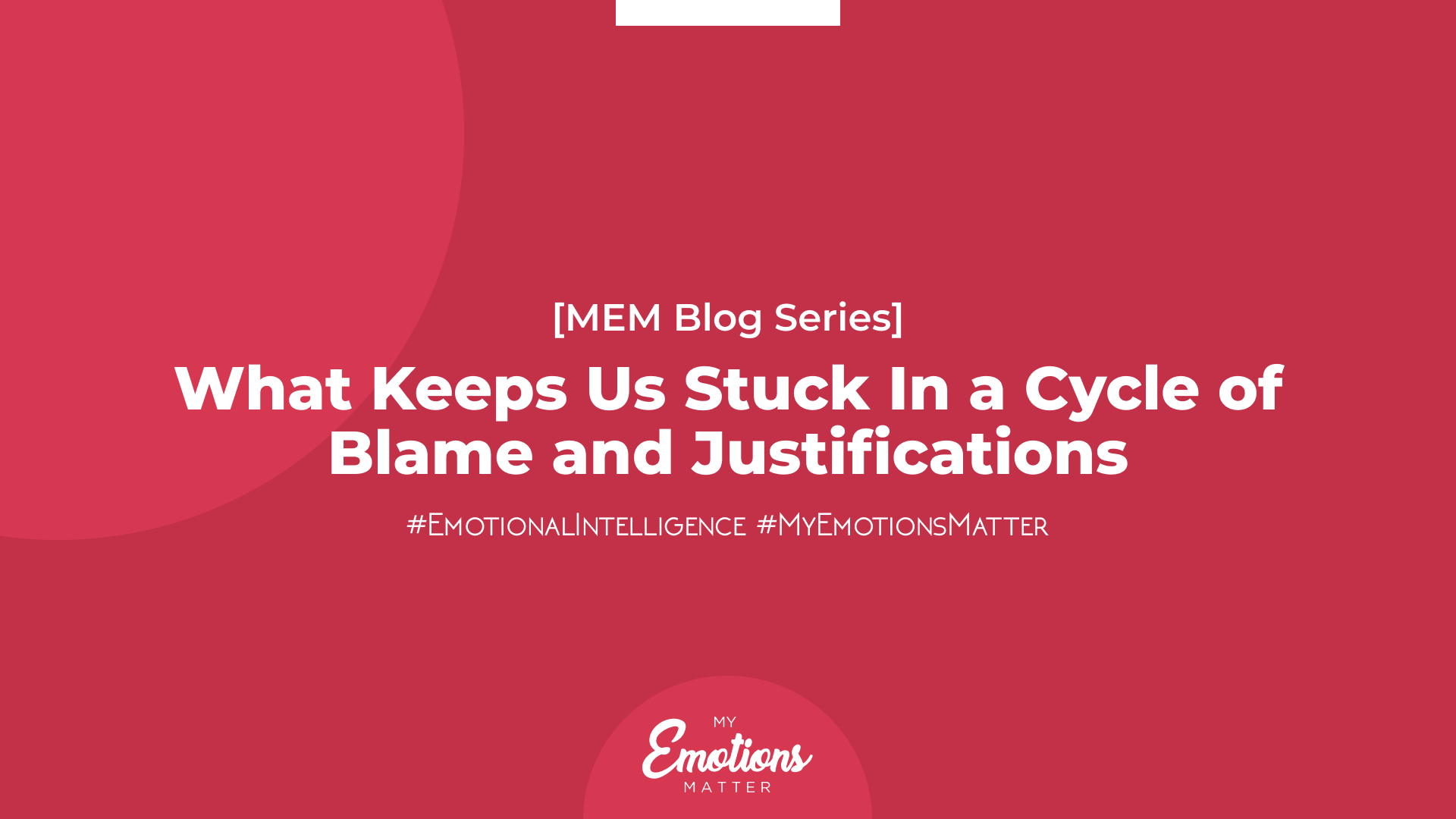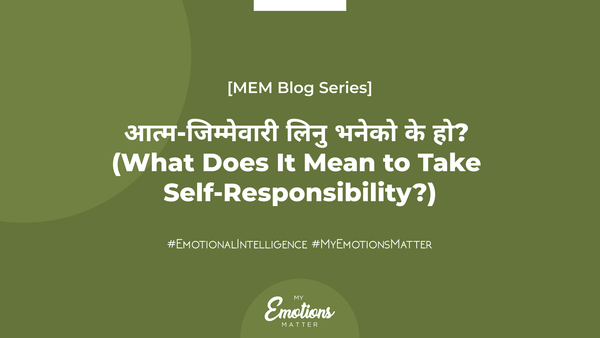What Keeps Us Stuck In a Cycle of Blame and Justifications
My individualistic nature means that most of my decisions and reactions are focused on what makes my life easier. While there is nothing wrong in thinking about your needs and taking action to fulfill them, reflecting on my patterns helped me understand how thinking only about myself could lead me to contribute to problems I was complaining about. On the surface, I would say that I wanted solutions to my problems (by wanting the other person to change). I wasn't aware of my blame-oriented mindset until I participated in My Emotions Matter's 10-hour Emotional Intelligence Mindset Course. I realized that I was blinded to the fact that I valued justifying myself more than finding lasting solutions to my interpersonal relationship problems, which happens when we're in the BOX of a Self-Focused Mindset (The Arbinger Institute, 2010).
A few days ago I had to work collaboratively with my newly married sister-in-law who values perfection. I am a person who likes working independently with minimum micromanagement whereas my sister-in-law’s desire for perfectionism makes her wants to ensure every little details are to her liking. As a result of that need, she is more likely to want to supervise. Given the difference in our nature, it was difficult for us to collaborate.
When my sister in-law supervised me when working in the kitchen together, I saw her as someone who was acting from a place of superiority (I saw her as an obstacle I needed to overcome). I felt that she micromanaged me in every step because she wanted to prove that I am incapable of doing anything by myself. As a result of this perception, I got my defense mechanisms up and tried to do more and more things by myself with the need to prove to her that I am fully capable of working independently in the kitchen. As a more experienced person when it comes to working in the kitchen, this led her to trust me even less. She felt that I was being too arrogant in not considering her advice. As a result, she became more assertive, which in turn, I perceived negatively (and therefore gave me the justification that I was right in what I was doing). Looking back, I can see how we were stuck in a blame game and inviting each other to continue playing that game.
Before taking this course, if someone were to ask me any question about her, I would probably rant and complain about how she just finds flaws in everything that I do. But after going through the sessions, I have now understood the place she comes from when correcting me. As aforementioned, she values perfectionism and by virtue she has the need to correct things that are or could potentially be wrong. She does so keeping the end goal of having perfect results in mind and not with the intention of hurting me (this was hard for me to see earlier). This reflection that I had in the session was such an eye-opener. It made me feel guilty for all the times I developed resentful feelings toward my sister-in-law when working collaboratively with her. The contemplative space offered by the course gave me a chance to take an honest look at myself and my role in the problems I was complaining about. Once I found this insight about my dynamic with my sister in-law, I was no longer burdened with needing to justify my behaviors. I started seeing her as a human who supervises me not to find flaws in me but to fulfill her objective of obtaining perfect outcomes. This lowered my vindictiveness towards her and ultimately I contributed positively to the relationship; saving it from drowning in the never ending ebbs and flows of blame and justifications.
The concept of blame game has therefore taught me a few valuable lessons about our relationships:
- My defensiveness provokes others to also become defensive.
- Not realizing my contribution, I take their behaviors as proof for why I’m right for doing what I’m doing (and how others are wrong).
- As long as I’m in a Self-Focused Mindset, I will not have the headspace to look for solutions to problems that cripples my relationships.
- If my mindset started (or at the very least maintained) the problem, I don’t have to wait for others for solutions. I can make the first move. I can shift my mindset.
- Shifting my mindset doesn’t ensure that the other person will change theirs. But as long as I’m operating from a Self-Focused Mindset, it will most definitely encourage them to continue being in the same mindset.
- At the very least, I owe it to myself to shift to an Impact-Focused Mindset and not make my life more complicated than it needs to be (and this is the only thing I have control over).
References
The Arbinger Institute. (2010). Leadership and self-deception: Getting out of the box (2nd ed.). Berrett-Koehler Publishers.




